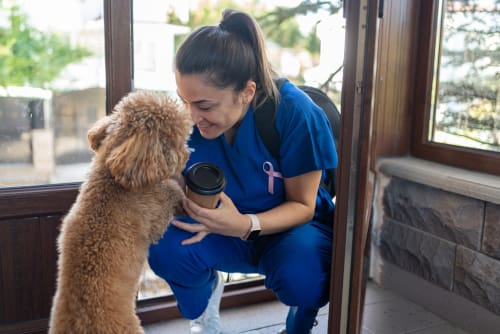The nursing shortage is a pressing issue that affects healthcare systems globally. The demand for skilled nurses continues to outpace the supply, leading to overworked staff, increased patient wait times, and, ultimately, compromised patient care. One effective solution to this growing problem is encouraging more individuals to pursue a Bachelor of Science in Nursing (BSN). This blog post will explore the role of BSN-prepared nurses in addressing the nursing shortage and the benefits they bring to the healthcare industry.
Understanding the Nursing Shortage
The nursing shortage is a multifaceted problem influenced by several factors, including an aging population, increased prevalence of chronic diseases, and the retirement of a significant portion of the nursing workforce. According to the American Association of Colleges of Nursing (AACN), the U.S. alone is projected to need over 200,000 new RNs each year until 2026 to meet healthcare demands. This shortfall highlights the urgent need for more qualified nurses.
The Role of BSN-Prepared Nurses
BSN-prepared nurses are those who have completed a Bachelor of Science in Nursing, a degree that provides a comprehensive education encompassing clinical practice, leadership, and research. These nurses are equipped with advanced skills and knowledge, enabling them to perform at a higher level than those with an Associate Degree in Nursing (ADN) or a diploma in nursing.
Enhanced Clinical Skills
BSN programs offer extensive training in critical thinking, clinical reasoning, and evidence-based practice. This advanced education ensures that BSN-prepared nurses are adept at handling complex clinical situations, improving patient outcomes. Studies have shown that hospitals with a higher percentage of BSN-prepared nurses report lower mortality rates and better patient outcomes.
Leadership and Management
A significant component of BSN education focuses on leadership and management skills. BSN-prepared nurses are trained to take on leadership roles within healthcare settings, coordinating teams, and managing patient care more effectively. Their ability to lead can alleviate some of the burdens on healthcare systems struggling with staffing shortages by improving efficiency and patient flow.
Adaptability and Innovation
BSN programs emphasize research and evidence-based practice, encouraging nurses to stay current with the latest medical advancements and treatment protocols. This adaptability is crucial in a rapidly evolving healthcare landscape, where nurses must continually update their skills to provide the best care possible.

Benefits of Increasing the BSN Workforce
Increasing the number of BSN-prepared nurses can have a profound impact on mitigating the nursing shortage. Here are some of the key benefits:
Improved Patient Care
Research consistently shows that BSN-prepared nurses are linked to better patient outcomes. A study published in the Journal of Nursing Administration found that a 10% increase in the proportion of BSN-prepared nurses on hospital units was associated with a 5% decrease in the odds of patient mortality. Better patient care translates to increased patient satisfaction and trust in the healthcare system.
Increased Access to Care
BSN-prepared nurses are more likely to work in diverse healthcare settings, including primary care, public health, and outpatient clinics. Their broad skill set allows them to provide high-quality care in various environments, increasing access to healthcare services for underserved populations.
Enhanced Professional Development
A BSN opens doors to advanced career opportunities and specialization. Nurses with a BSN can pursue roles in education, research, administration, and advanced practice nursing. This career growth helps retain nurses within the profession, reducing turnover rates and maintaining a stable workforce.
Addressing Barriers to BSN Education
We’ll get the benefits of earning a BSN, but there are barriers that potential nursing students may face. Addressing these barriers is crucial to increasing the number of BSN-prepared nurses.
Financial Constraints
The cost of a BSN program can be a significant obstacle for many students. Scholarships, grants, and loan forgiveness programs are essential in making nursing education more accessible. Many healthcare institutions also offer tuition reimbursement for nurses seeking to further their education.

Work-Life Balance
Balancing work, family, and education can be challenging for nursing students. Flexible scheduling, online courses, and part-time study options can help students manage their responsibilities while pursuing a BSN. Encouraging employers to support their staff’s educational endeavors through flexible work hours and professional development opportunities can also make a difference.
Awareness and Encouragement
Raising awareness about the benefits of a BSN and encouraging more individuals to pursue this path is vital. Outreach programs, career counseling, and partnerships with high schools and community colleges can help attract diverse candidates to the nursing profession.
Why Earn a BSN?
Obtaining a BSN offers numerous advantages for individuals considering a career in nursing. These benefits extend beyond the clinical and professional aspects, impacting job security, salary, and overall career satisfaction.
Job Security
Nursing is a field with consistently high demand, and BSN-prepared nurses are especially sought after. According to the Bureau of Labor Statistics (BLS), employment for registered nurses is projected to grow 7% from 2019 to 2029, faster than the average for all occupations. BSN-prepared nurses have a competitive edge in the job market, often being preferred by employers over those with an ADN or diploma.
Higher Salary
BSN-prepared nurses typically earn higher salaries compared to their counterparts with an ADN or diploma. Data from the BLS indicates that the median annual wage for registered nurses was $75,330 in May 2020, with BSN-prepared nurses often earning at the higher end of this spectrum. Additionally, nurses with a BSN are eligible for more advanced positions, which come with increased compensation.
Opportunities for Advancement
A BSN is a stepping stone for further education and career advancement. It provides the foundation for pursuing advanced practice roles such as nurse practitioner, clinical nurse specialist, nurse anesthetist, and nurse midwife. These roles not only come with increased responsibility and autonomy but also significantly higher salaries.
Professional Recognition and Credibility
BSN-prepared nurses are often viewed as more knowledgeable and skilled, leading to greater professional recognition and credibility. This recognition can result in more opportunities for leadership roles, participation in policy-making, and involvement in advanced clinical practices.
Personal Fulfillment and Career Satisfaction
Pursuing and attaining a BSN can lead to greater personal fulfillment and career satisfaction. The comprehensive education and training received in a BSN program equip nurses to provide high-quality care, engage in lifelong learning, and contribute meaningfully to the healthcare field. The ability to make a positive impact on patient outcomes and the healthcare system as a whole can be incredibly rewarding.
Being Part of the Nursing Shortage Solution
The nursing shortage is a complex issue that requires multifaceted solutions. Earning a BSN is a crucial step in addressing this gap, as BSN-prepared nurses bring advanced skills, leadership, and innovation to the healthcare system. By increasing the number of BSN-prepared nurses, we can improve patient care, increase access to healthcare services, and enhance the overall quality of the healthcare workforce.
For those considering a career in nursing or looking to advance their education, pursuing a BSN offers numerous benefits and opportunities. It not only contributes to personal and professional growth but also plays a significant role in strengthening the healthcare system and addressing the ongoing nursing shortage.

